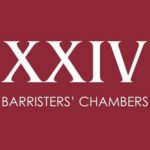The interests of illegitimate or adopted persons can be problematic when dealing with older settlements. Richard Dew explores an illuminating case An issue which all the beneficiaries and the trustees wished to be resolved in favour of the illegitimate child was resolved by means of a relatively straightforward appointment and application to court rather than …
Continue reading "Trusts: Keeping up with the times"
This post is only available to members.
Harriet Irving and Duncan McGowan explore the changing landscape of trusts in the light of 5AMLD 5AMLD expands the TRS net from previously only catching ‘taxable’ trusts to now requiring trustees of all relevant trusts to register on the TRS, unless they fall within a specific exclusion. Recent years have seen an ever-increasing drive on …
Continue reading "Trusts: A benefit or a burden?"
This post is only available to members.
Mark Pawlowski considers the interrelationship between proprietary estoppel and secret trusts To what extent is it open to a testator to change their will or revoke the instructions they have given to their secret trustee so as to frustrate the expectations of the secret beneficiary? The answer to this question depends on whether the secret …
Continue reading "Trusts: Hush money"
This post is only available to members.
Wills & Trusts Law Reports | Spring 2020 #178Held:
1) On the wording of the trust deed, the protectors of the trust had to act jointly. The unilateral designation of the first successor protector was therefore invalid, as was his purported designation of P as his successor protector.
2) Since the powers of the protector under the trust deed – the power to remove and appoint trustees, power to move the situs of the trust and authority to require and approve accounts – were fiduciary, and since the personal characteristics of the individual originally appointed by the trust deed were not essential to the exercise of t...
Timothy Sherwin examines the importance of s53 of the Trust (Guernsey) Law and the rule in Saunders v Vautier Discretionary beneficiaries cannot be said to have an immediate, vested and indefeasible interest in the trust property. This article considers the decisions at first instance and on appeal, in Rusnano Capital AG (in liquidation) v Moland …
Continue reading "Trusts: When is a beneficiary not a beneficiary?"
This post is only available to members.
Wills & Trusts Law Reports | Winter 2019 #177The claimants were the trustees of a number of trusts relating to an English estate, including a fund created by an appointment in 1978 (the T fund). The claim was for rectification or alternatively rescission of a deed of appointment made in 2010 relating to a sub-fund of the T fund. The defendant was the beneficiary of the relevant sub-fund. He did not oppose the claim. HMRC were aware of the proceedings but chose not to take part other than to request that certain authorities be considered by the court.
In 1930, the settlor had settled property on a strict settlement which incl...
Sean Hilton highlights the importance of identifying trust issues at the outset of a case and ascertaining the willingness of trustees to make distributions from such assets ‘Had the court in Wodehouse been fully appraised of the nature of the trusts, and had the trustees been properly questioned, the judge may have reached a different …
Continue reading "Trusts: The complete picture"
This post is only available to members.
Timothy Sherwin explores the unanimity principle, and the position of trustees managing art and cultural property ‘Strangers need only examine the trust instrument and satisfy themselves that the relevant power can be validly exercised by only some of the trustees, and they can then assume that the actual exercise by some of the trustees is …
Continue reading "Trusts: Striking an artful balance"
This post is only available to members.
Sukhninder Panesar looks at recent case law on liability for knowing assistance ‘In order for a stranger to be held liable for assisting in a breach of trust, a number of requirements must be met.’ What constitutes dishonesty in the English legal system has continued to challenge both civil and criminal courts. Over the last …
Continue reading "Trusts: Test of dishonesty revisited"
This post is only available to members.
Mark Pawlowski examines recent case law on resulting trusts, the presumption of advancement and joint borrowing under a mortgage ‘The court reiterated the view, expressed in Gorman, that prima facie, if the purchase is financed in whole or in part on mortgage, the person who undertook liability for the mortgage repayments, as between joint owners, …
Continue reading "Trusts: Who owns what?"
This post is only available to members.








